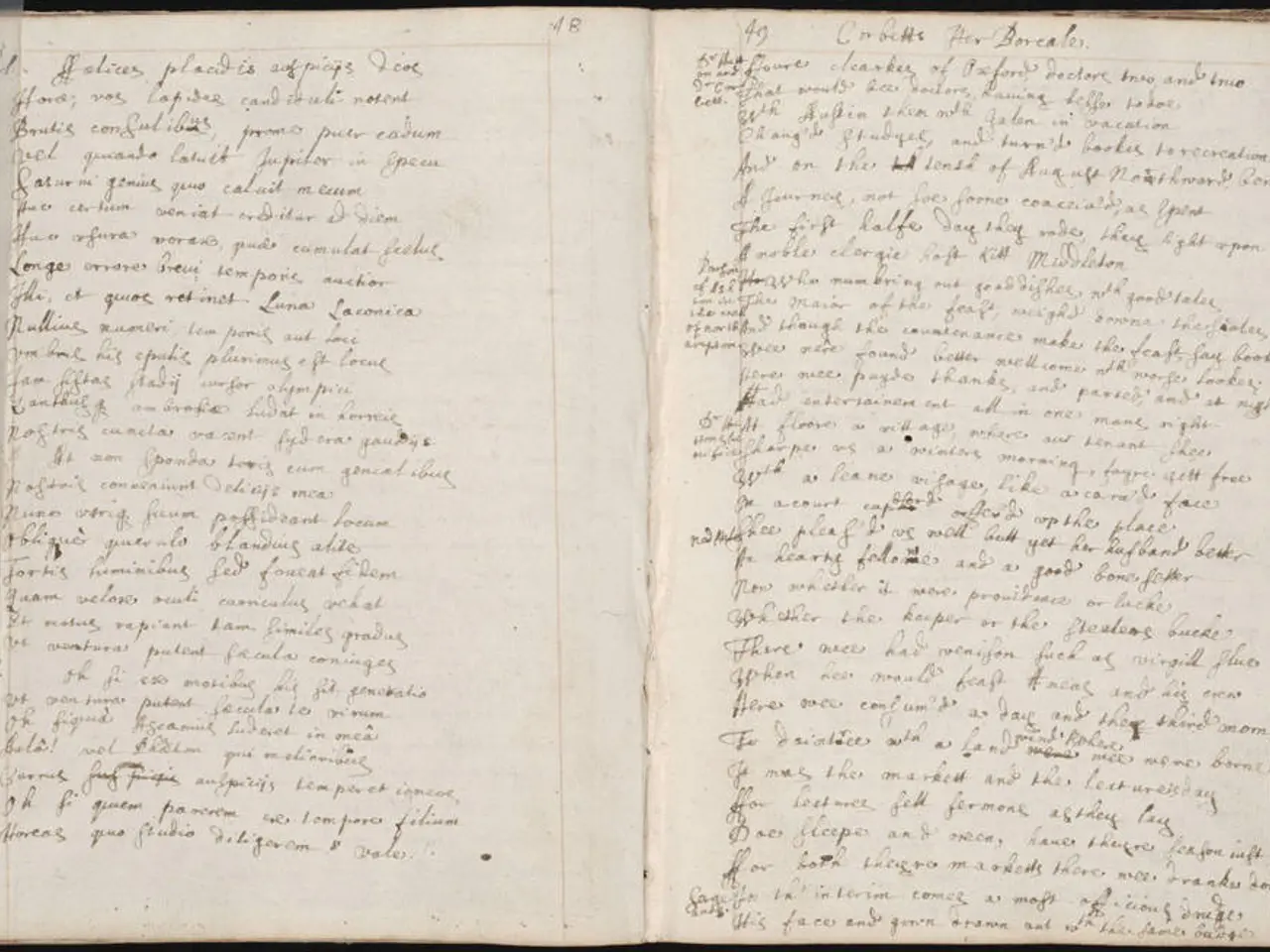AI-Powered Grammarly's New Feature: Assessment of AI-Generated and Plagiarized Texts
In the ongoing battle against plagiarism and AI-generated content in student work, Grammarly, a popular writing assistant, has launched a new feature called Grammarly Authorship. This tool aims to help students identify areas in their papers that require citations and check for paraphrasing, but its effectiveness and implications for privacy and student autonomy are subject to debate.
Grammarly Authorship, like other AI detection tools, has its limitations. While it achieves about 91% accuracy in AI detection, it falls short of top academic tools like Copyleaks or Turnitin, which can reach near-perfect detection of AI-generated essays with minimal false positives or negatives [1][4]. The tool struggles significantly with more advanced AI-generated text, AI-polished human writing, and adversarial text manipulations, leading to inconsistent and unreliable results [2][3].
Privacy concerns are substantial as these tools typically require students to submit their text to third-party servers for analysis, potentially exposing sensitive or unpublished work without full transparency. Heavy reliance on automated detection can also undermine student autonomy by discouraging genuine engagement with writing and critical thinking, as students may become overly dependent on AI tools to produce or verify their work [2]. There is also concern about false positives disproportionately impacting non-native English speakers or human text that has been lightly edited by AI, potentially penalizing innocent students unfairly [3].
Despite these concerns, Grammarly's approach focuses mostly on clarity, grammar, and tone enhancement rather than true AI detection or evasion. Its "humanizer" is designed to polish and improve writing quality, not to circumvent AI detection [5]. This suggests that Grammarly primarily encourages transparent and ethical AI usage rather than covert use, aligning with its stated stance.
Educators and institutions are advised to use Grammarly Authorship and similar AI detection tools as one component within a broader, human-involved evaluation framework rather than as sole arbiters of authorship or plagiarism. The writer recommends Grammarly Authorship to students, provided the institution approves the app, and plans on continuing to use it for personal writing.
However, requiring students to use Grammarly Authorship might cut back on AI use but invade privacy and cut down on writing preferences. A savvy student might generate AI text and type it to avoid detection. Grammarly Authorship correctly identified the material typed into the document, AI-generated text added as a test, and quotes copied and pasted from another document in the tests conducted. It could potentially be used by students as a protection mechanism against false AI cheating accusations.
In summary, while Grammarly Authorship offers a useful tool for academic integrity, its accuracy, privacy implications, and potential impact on student autonomy require careful consideration. It is essential to use this tool as part of a broader evaluation framework, ensuring that genuine writing skills are not overshadowed by reliance on AI tools.
References:
[1] Grammarly. (2022). Grammarly Authorship: Protecting Your Writing from AI Plagiarism. Retrieved from https://www.grammarly.com/blog/grammarly-authorship/
[2] O'Neil, C. (2022). Grammarly Authorship: A Double-Edged Sword for Academic Integrity. Retrieved from https://www.academicintegrity.org/preventing/plagiarism/grammarly-authorship-double-edged-sword-academic-integrity/
[3] Johnson, L. (2022). Grammarly Authorship: Privacy, Bias, and the Future of AI in Education. Retrieved from https://www.edutopia.org/blog/grammarly-authorship-privacy-bias-ai-education-lisa-johnson
[4] Copyleaks. (2022). Comparing AI Plagiarism Detection Tools: Grammarly vs. Copyleaks. Retrieved from https://www.copyleaks.com/blog/grammarly-vs-copyleaks/
[5] Grammarly. (2022). Grammarly's Humanizer: Polishing Your Writing for Better Engagement. Retrieved from https://www.grammarly.com/blog/grammarly-humanizer/
- Grammarly Authorship, although valuable for promoting transparency and ethical AI usage, raises questions about student privacy and reliance on AI tools for writing, potentially hindering the development of genuine learning and critical thinking skills.
- A student might employ strategies to evade detection, such as generating AI text and manually typing it, as a countermeasure against AI-based plagiarism tools like Grammary Authorship, potentially compromising the authenticity of the learning process.




